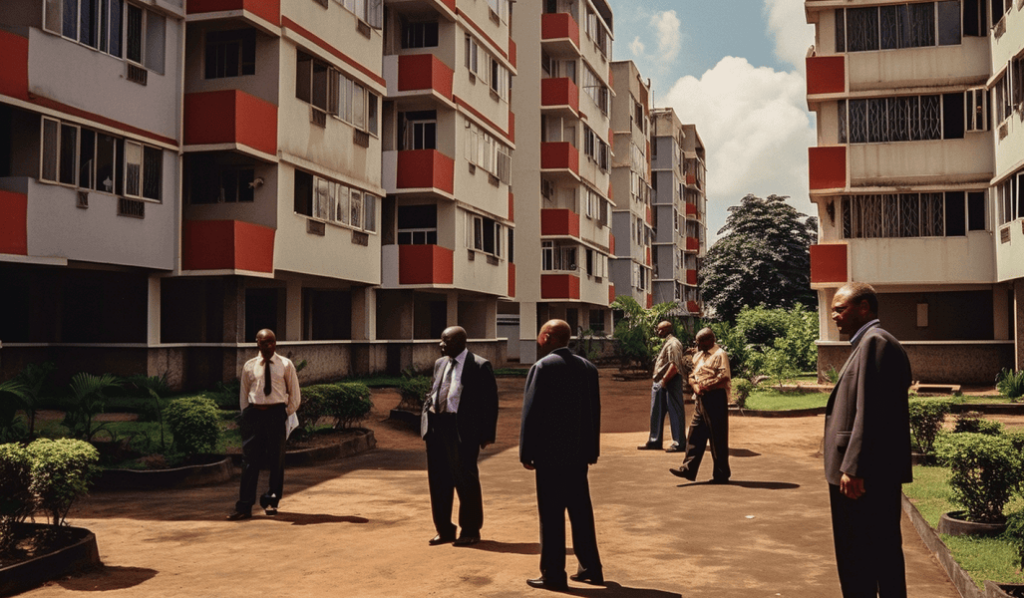- Note: Starting January 1, 2024, there’s a 7.5% tax on all rent you get, and it’s a final tax (but until December 31, 2023, the rate is 10%). You can’t subtract any expenses, losses, or capital deductions from the rent.
- The KRA data collection exercise aims to increase rental tax collection from landlords who have not paid rental tax.
- KRA agents are supposed to identify themselves before they can request personal information from landlords.
- Landlords can self-assess and register a property via the KRA I-tax portal.
Kenyan landlords are required to file Monthly Rental Income (MRI) tax returns as per the Finance Act of 2015. The tax is payable by any person earning annual rental income exceeding Ksh 280,000 but below Ksh 15 million annually.
However, not all landlords have been diligent when it comes to self-reporting and filing taxes. As such, KRA initiated a data collection exercise in 2022 to increase rental tax collection. The KRA data collection on rental properties was initially started in Nairobi but is expected to expand to other areas to increase tax collected from rental income.
So far, data collection has already taken place along major areas in Langata, Dagoretti North, Embakasi East, Kasarani, and Kamukunji. Other areas include Pangani, Ngara East, Ngara West, Eastleigh North & South, Eastleigh Airbase, California, Ruai, Kilimani, Kileleshwa, South B & C, Utawala and Mihang’o.
READ ALSO: Types of Taxation in Kenya for a Real Estate Investor
Table of Contents
- How Can Landlords Navigate the New Data Collection Exercise by KRA For Rental Properties?
- How Does KRA Collect Data on Rental Income, And What Do Landlords Need to Do to Ensure Compliance?
- Are There Penalties for Non-Compliance with KRA Rental Tax Regulations?
- How Can Landlords Accurately Calculate and Declare Rental Income to Prevent KRA Penalties?
- Are There Changes or Updates in KRA Rental Tax Regulations That Landlords Need to Be Aware Of?
- Are Professional Services or Resources Available to Help Landlords Navigate KRA Rental Tax Requirements?
How Can Landlords Navigate the New Data Collection Exercise by KRA For Rental Properties?
Landlords can also self-register their properties on the KRA website via the i-tax portal to ensure KRA rental tax compliance. This will save you the need to wait for the KRA officers to visit your property.
How Does KRA Collect Data on Rental Income, And What Do Landlords Need to Do to Ensure Compliance?
The impact of the KRA data collection exercise on KRA’s tax nettings from income tax is expected to be massive. As such, landlords whom KRA agents have not visited should prepare for the exercise. KRA is set to deploy tax officers who should identify themselves to landlords and property owners through KRA staff identification cards.

The guidelines for KRA rental data collection are vague. However, based on the online property self-registration procedure, you need your PIN, and then the tax officers can get your information from their system. Besides that, it would be best to be on-site for the physical data collection when the KRA officers visit your property.
READ ALSO: Capital Gains Now at 15%: What it Means For Property Sellers
Are There Penalties for Non-Compliance with KRA Rental Tax Regulations?
Yes. Late filing of MRI returns attracts a penalties as follows;
- Ksh 2,000 or 5% of the tax due, whichever is higher for individuals and Ksh. 20,000 or 5% of the tax due, whichever is higher for body corporations
- Late payment penalty is 5% of the tax
- Late payment interest is 1% per month or part of the month.
How Can Landlords Accurately Calculate and Declare Rental Income to Prevent KRA Penalties?
Currently, landlords must file monthly rental income (MRI) tax returns on or before the 20th of the following month. For example, rent received in January should be declared, and the tax amount should be remitted by the 20th of February.

When you file the monthly tax returns online via i-Tax, the tax payable will be computed automatically at 10% (7.5% from 1st January 2024) based on the gross rent. If a landlord does not receive any rent in a particular month, they can file a NIL return.
Landlords can also file the MRI using the KRA M-service App and they must remit the tax payable amount within five working days after the deduction is made.
Are There Changes or Updates in KRA Rental Tax Regulations That Landlords Need to Be Aware Of?
The tax rate is 7.5%, effective 1st January 2024, on the gross rent received and is the final tax (the current rate is 10% until 31st December 2023). The tax should be remitted by the fifth working day after the deduction was made.
Additionally, the Commissioner may revoke this appointment at any time. No expenses, losses, or capital deductions are allowed for deduction from the gross rent.
Exemptions from MRI;
- Rental income from commercial property
- Non-resident landlords
- Landlords who earn rental income over 15,000,000 per year.
Are Professional Services or Resources Available to Help Landlords Navigate KRA Rental Tax Requirements?
Yes. If you are not in a position to file your own monthly rental income tax returns, you can hire a tax accountant to assist you in filing them. You can also reach out to KRA customer care for assistance.



